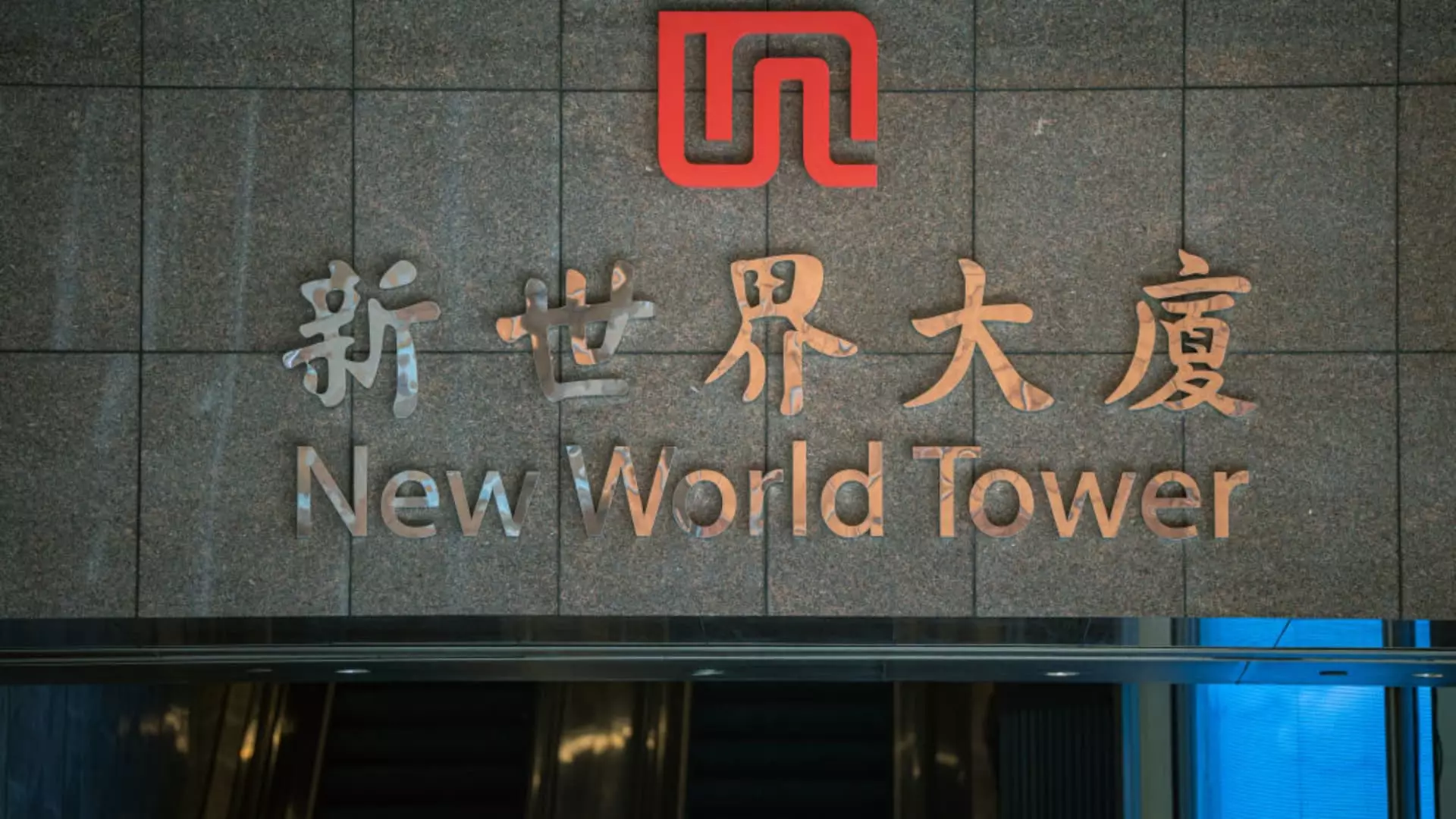The resignation of Adrian Cheng, a key figure in New World Development, has triggered significant movement in the company’s stock price, witnessing a remarkable 23% increase upon the resumption of trading on Friday. Such a spike in share value upon the announcement of leadership change underscores the prevailing sentiment that corporate governance and management efficacy are of paramount importance in today’s volatile market. The unexpected transition, with Chief Operating Officer Eric Ma Siu-Cheung stepping into the role of CEO, also highlights a significant shift in tradition in Hong Kong’s family-run businesses, where leadership positions are typically held within the founding family.
As Cheng steps back to focus on personal commitments and public service, the implications for New World Development are substantial. Investors often react favorably to changes in management when it signals a potential for revitalization and a departure from entrenched practices that may not align with the realities of contemporary market challenges. The successful navigation through these challenges will now fall heavily on Eric Ma’s shoulders, particularly in an environment where the construction and real estate sectors are experiencing significant downturns.
The financial landscape for New World Development is fraught with difficulties, as indicated by a projected loss of HK $19 billion to HK $20 billion for the fiscal year ending in June. This loss is attributed to declining sales, investment setbacks, and rising impairment charges, painting a troubling picture for the developer amidst the broader malaise affecting both Hong Kong and mainland China’s property markets. This situation serves as a stark reminder of how critical economic and market conditions can pressure even the most established companies, raising questions about their long-term sustainability and strategic direction.
Elevated debt levels further complicate New World’s financial outlook, suggesting that the company may not only need to navigate operational issues but also initiate robust measures for debt management. Analysts have posited that without innovative solutions and better management practices, survival in the current environment will become increasingly challenging.
The substantial rally in New World’s shares can partly be attributed to a wave of stimulus measures instituted by the Chinese government aimed at stabilizing the faltering real estate market. These governmental initiatives, which include monetary easing and fiscal stimulus, signal a commitment to rejuvenate the industry that has been plagued by downturns. Following the central bank’s announcement of these measures, Hong Kong equities, including New World, appear to have responded positively, reflecting investor optimism about stabilization and recovery.
Furthermore, the acknowledgment from top Chinese leaders that immediate actions are needed to curb the decline in the real estate sector emphasizes the seriousness of the situation. These measures not only focus on the real estate market but also extend to critical areas such as employment and demographic challenges, illustrating a comprehensive approach to economic recovery.
Economists, including Alicia Garcia-Herrero of Natixis, have highlighted the crucial role that solid corporate governance plays, particularly in turbulent times. The transition of leadership at New World Development exemplifies a shift towards recognizing the necessity of appointing proficient leaders rather than relying solely on familial ties. The lessons gleaned from such scenarios could resonate widely across Asia, serving as a clarion call for a reevaluation of leadership structures in family-owned enterprises, especially those burdened by declining market performance and increasing competition.
The developments surrounding New World Development encapsulate broader trends within Hong Kong’s corporate and economic landscapes. While the company’s leadership change has been met with a positive market response, the enduring challenges of the real estate sector require astute management, a rethinking of governance principles, and a proactive approach to restoring confidence among investors and stakeholders alike.

